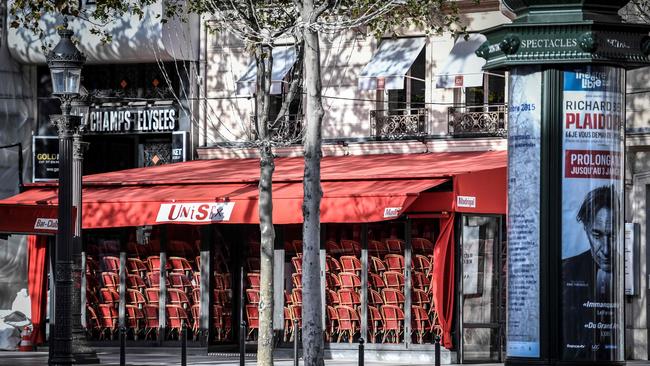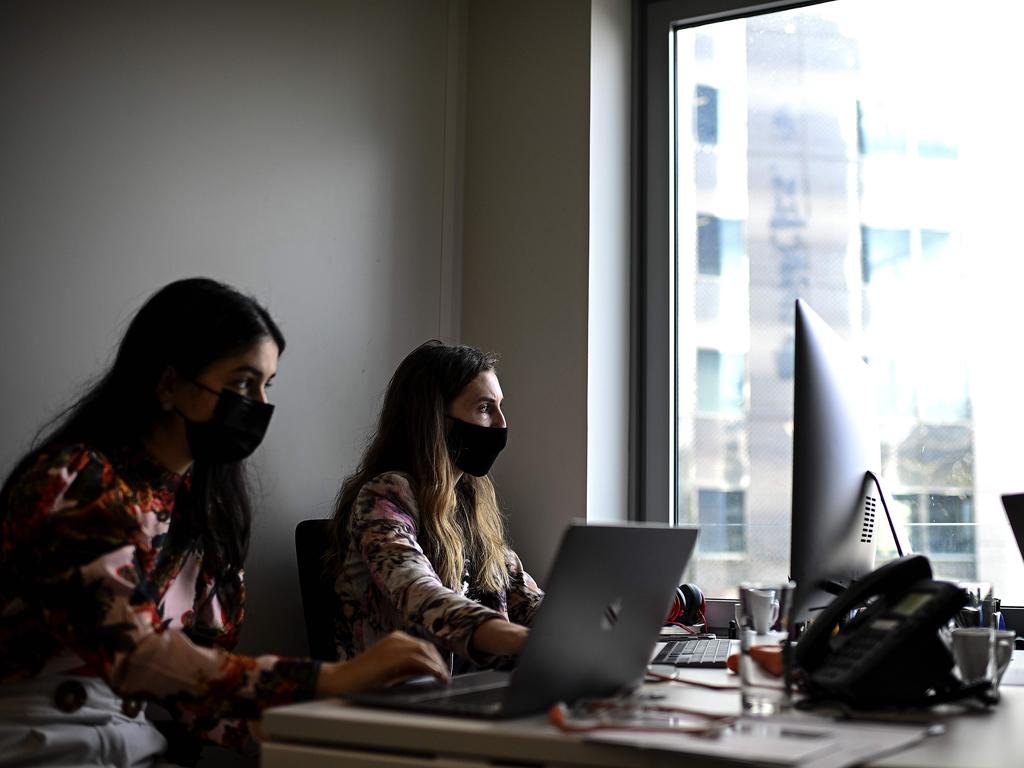For many in the West, working from abroad is the new working from home
With offices mostly shut and face-to-face meetings rare, some are escaping Europe’s chilly north for the Mediterranean coast

The moment Jennifer Babin found out her employer’s offices in Paris wouldn’t reopen any time soon, she packed up her bags and moved to the Sicilian city of Palermo.
“I jumped at the opportunity to relocate to Sicily because I love it so much,” says Babin, 28, who continues to work for a Paris-based insurance company but from Palermo.
“It’s vibrant and chaotic, but in a nice way. I adore it.”
With the pandemic continuing to rage in most Western countries, and most offices likely to stay shut through the winter, more Europeans and Americans are taking the chance to work from abroad.
They are leaving their homes in Paris, London and New York and working remotely from warmer climes that they would normally see only while on vacation, such as southern Italy or Portugal. Although many nations around the world remain closed to US tourists during the pandemic, EU countries admit Americans seeking residency.
For some, it is a once-in-a-lifetime chance to have their cake and eat it: to swap the chilly, damp north for the Mediterranean while holding on to their jobs.
It also can be a way to cut costs. Babin now pays €600 ($973) monthly for a two-bedroom apartment overlooking a piazza in downtown Palermo, about one-third of what she paid for her smaller flat in Paris.

“I’m very grateful to have a job, a Parisian salary and to be living somewhere that is much cheaper and I think much nicer,” says Babin, who is originally from Australia.
Greater workplace flexibility is likely to stay. Around 80 per cent of corporate executives polled in a Gartner survey published in June said they expected to continue allowing remote work even after the pandemic is over.
Nearly half said they planned to allow their employees to work remotely full time.
For the self-employed, the shift to working from anywhere is sometimes even easier, since face-to-face meetings with clients have mostly been replaced with video calls.
Jincey Lumpkin, a writer and beauty-industry expert from New York, is currently working from Portugal, but she is sticking to an US East Coast schedule.
“I can wake up at 10am, and that’s 5am US time. I feel like I’m really on top of it,” she says. The downside is that she works late, typically until 1am, but she doesn’t mind: “I am a night owl. I always struggled to get to the office on time.”
Lumpkin had a full-time job in advertising until she was laid off in the northern spring when the pandemic exploded. “It was a blessing in disguise,” says the 40-year-old, who took time to write a fantasy novel over the northern summer before freelance work started picking up.
She flew to Portugal in September to house-hunt with her wife. The couple is weighing the pros and cons of living in Lisbon, the capital city, or somewhere quieter along the coast. They plan to settle in Portugal permanently once their residency visa is ready.
But they won’t give up their New York apartment yet. Once the coronavirus outbreak is under control, Lumpkin wants to travel to the US regularly to meet clients and attend photo shoots.
“I love New York and the people, but we can also be very impatient,” she says. “The pace of life here is much more manageable.”

Life in southern Europe isn’t always easy: The pandemic has hit the region hard. Portugal’s government last week imposed night-time and weekend curfews across most of the country to slow the spread of the virus. In Italy, where a surge in infections is putting hospitals under pressure, parts of the country are under a light lockdown, with bars and restaurants and travel tightly restricted.
Despite the new rules, Duncan Wallis, a 47-year-old from Manchester, England, says moving to Sicily has been worth it.
“I see no good reason to leave. The restrictions in Italy, even if they go for a national lockdown, will be similar to procedures being followed elsewhere in Europe,” says Wallis, who trains teacher trainers in various parts of the world, a job he is now doing remotely.
“I wanted to go to a place where I could get a bit of sunshine, spend more time outside, and where rents would be a little cheaper,” he says. “It’s working pretty well.”
After spending this northern spring’s lockdown in the UK, Wallis packed his bags and flew to Italy in August. He arrived in Palermo earlier this month, where he plans to stay for at least a month, likely until he can resume in-person training.
There are downsides to working from abroad in a new city in the middle of a pandemic. “Occasionally you do get a bit lonely,” he says. “I’m looking forward to going on a social binge. It’s not something I normally do, but I recognise the need to do that, to have some human contact.”
The work-from-abroad tribe is growing so rapidly that some businesses are starting to cater to its needs. Some hotels, devoid of tourists, are now offering packages tailored for remote workers, including special rates for long-term stays, high-speed Wi-Fi and workspaces.
Hospitality company Selina specifically targets the work-from-anywhere crowd. The company has introduced monthly rental packages for its Portugal resorts, offering services such as quiet working spaces and yoga classes, a program it has since extended to Mexico, Costa Rica and elsewhere.

“Locals wanted to get out of the city. And expats who were about to return to their home countries wanted to stay. We saw that potential,” says Manuel Rito, the Lisbon-based director of European marketing for Selina.
He anticipates the trend will only grow once the pandemic is over. “People will want to work from everywhere in the world, and to work and explore wherever they are.”
For Loren D’Amico, a 32-year-old from Wisconsin, the pandemic offered a rare opportunity to spend several months in his family’s ancestral home — Sicily — along with his wife and two children.
In the northern spring, D’Amico got a new job at a medical software company that allows him to work remotely full-time. Their children’s school’s shift to remote lessons also opened up new possibilities.
“It just means that we get up a little bit later and work a little bit later,” says D’Amico, who arrived in Palermo last week and is planning to apply for Italian citizenship during his stay.
The D’Amico family is eager to skip the winter in Wisconsin, which is grappling with one of the worst coronavirus outbreaks in the US.
“We are also doing it for safety’s sake,” says D’Amico. “And Wisconsin gets very cold. We thought: Why not move to a Mediterranean climate where we can be outside?”
The Wall Street Journal





To join the conversation, please log in. Don't have an account? Register
Join the conversation, you are commenting as Logout